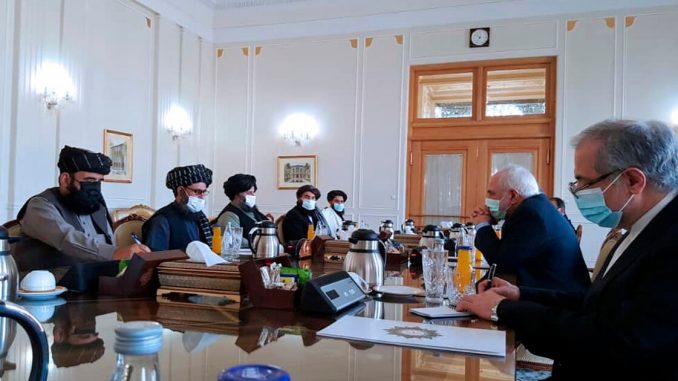
ISLAMABAD — The Taliban have been on a diplomatic blitz since peace talks with the Afghan government stalled in Qatar last month and the Biden administration said it plans to review a U.S.-Taliban agreement signed last February.
The flurry of activity — including Taliban visits to Iran and Moscow, and a planned trip to Turkey — comes as the Afghan government’s negotiating team warned this week that if the Taliban fail to resume the talks, the government could recall its team from Doha.
The peace talks resumed in early January in Qatar, where the Taliban have a political office, but quickly halted, marred by a spike in violence across Afghanistan, with the warring sides blaming one another.
A Taliban official said the talks stalled after the Taliban demanded the government side accept a new “inclusive Islamic system” that includes all “tribes and groups” in Afghanistan — language that indicates the Taliban seek guarantees that Islamic rule would be in place in post-war Afghanistan.
/cloudfront-us-east-1.images.arcpublishing.com/mco/GSCHJ4ULARGHXHACWHS5IMZPAQ.jpg)
The government instead demanded the Taliban first join the current political system and declare a cease-fire, said the official, who spoke on condition of anonymity because he is not authorized to speak to the media.
However, Nader Nadery, a government negotiator, told The Associated Press on Wednesday that it was the Taliban who have until now refused to return to the negotiating table. He denied any discussions over competing agendas.
In Kabul, deep divisions have emerged between Afghan President Ashraf Ghani and his political opponents over what some see as Ghani’s unwillingness to consider a power-sharing deal with the Taliban that could prematurely end his presidency, before 2024.
Ghani’s opponents have set up a 21-member parliament committee to possibly meet separately with the Taliban, accusing Ghani of stalling peace talks to remain in power. Ghani’s supporters, meanwhile, say the committee is trying to unseat the president.
The Pentagon said last week that the Taliban’s refusal to meet commitments to reduce violence in Afghanistan is raising questions about whether all U.S. troops will be able to leave by May as required under the U.S.-Taliban deal.
/cloudfront-us-east-1.images.arcpublishing.com/mco/TLTHAR6QTNDPHMMD4G7OPVHAKM.jpg)
The deal calls for all international troops to pull out, but only if the Taliban honor a promise to abandon their connection with terrorist groups — such as al-Qaida — and guarantee that their territory would not be used to attack the U.S. or its allies.
“A political settlement needs to happen before the exit of foreign troops because after their exit, chances of agreement among Afghans is slim to none,” increasing prospects for a civil war, said Torek Farhadi, a political analyst.
The Taliban have threatened to step up their their war if U.S. and NATO troops remain in Afghanistan after the May deadline.
Since the agreement signed last February under former President Donald Trump, the Taliban have not attacked U.S. and NATO troops but accuse the U.S. of breaking its promise not to carry out preemptive attacks. The U.S. denies the allegations and says it has responded to Taliban attacks against Afghan security forces.


Be the first to comment